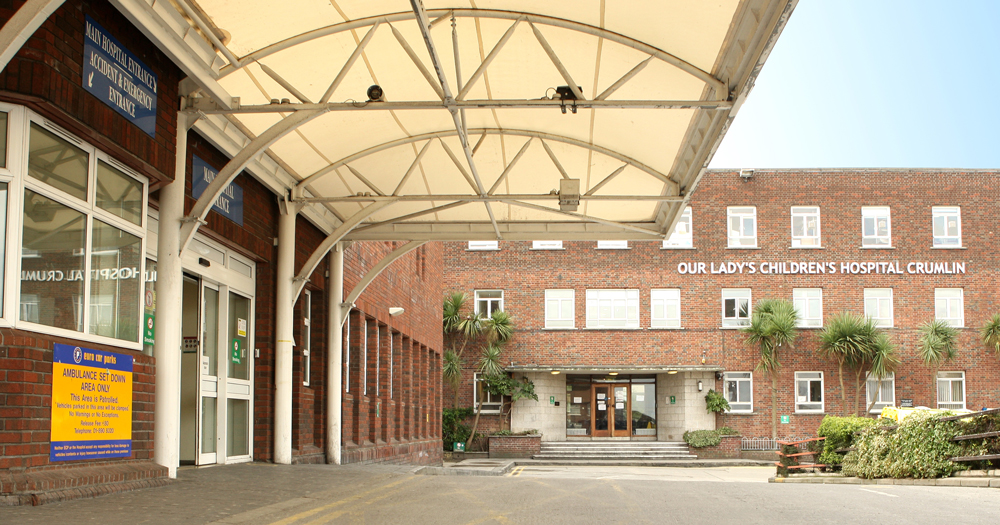Earlier this week The Irish Times reported on the HSE’s decision “not to pull puberty-blocking treatment at Crumlin Hospital” in the wake of the Tavistock ruling in London in December – this report comes mere weeks after TENI released a statement sharing that the HSE is ending child and adolescent care for young trans people, and furthermore, that Irish patients will be re-referred to a ‘new service’ that does not exist.
In the statement, TENI explained, “The gender-identity adolescent service that was situated in Crumlin Children’s Hospital is not receiving further referrals, either from Child and Adolescent Mental Health Service (CAMHS), or the Gender Identity Development Service UK (GIDS/UK/Tavistock). We believe this very concerning situation has transpired due mainly to the failure of the HSE to develop and implement a proper Multi-Disciplinary Team (MDT) to support the provision of care for young trans people in Ireland.”
We asked TENI to respond to this latest report and the communications within the HSE across the sector regarding puberty-blocking treatment. They began by clarifying that they are “pleased that the HSE is going to continue providing care to transgender children and adolescents currently in the service and that they are not withdrawing service due to a court case in another jurisdiction.
They further explain:
We are keen to remind others that the challenges between Crumlin and the Tavistock service is not due to the Bell case, but was due to expire already in January 2021. Therefore in 2019, the National Transgender Healthcare Steering Committee was convened to address overall concerns in trans health for children and adults. Part of that report that was finalised in February of 2020 highlighted that an Irish based service needed to be funded and put in place that would include a child and adolescent multi-disciplinary team to oversee the care and service.
We believe that continuing affirming care for children should be a priority, and transgender children deserve to have this care. Further, the treatment of puberty blockers has been available for over 34 years and was developed in the Dutch clinic, and there is already a 22 year follow up study. Additionally, the use of puberty-blocking medication should follow the international best practice and protocols in place that recommend a full multi-disciplinary team and six assessments. We affirm and call for this international best practice and structure to be put in place and carried out to support our children and families.
We do hope that Crumlin will also begin to provide insight into when referrals to the waitlist will begin to be addressed, and also what the process is for the 70-100 families that have been referred back to the HSE since the service agreement with the Tavistock has ceased. This waitlist is over two years long, and there has been no official communication on care. Now they are seeing trans children time out of the service without being seen and referred into the adult waiting list that is at three years. In the midst of the global pandemic, these actions are further deteriorating mental health and resilience.
The Times further reports that “documents released under FoI include emails from consultant psychiatrist Paul Moran, who works at the Loughlinstown clinic. In an email dated February 4th, 2020, he contrasted the response of the UK’s National Health Service to expressions of concern about Tavistock to that of the HSE which, he said, “as recently as last week stated they had no concerns about the service”.
In an email dated January 29th, 2020, he included a link to an interview Ms Bell had given the Mail newspaper about her case against Tavistock. “It is only a matter of time before we will have cases taken against the HSE by some of the children currently attending Crumlin,” said Dr Moran. “The same gender service (Tavistock GIDS) implicated in the case above continue to recommend hormone treatments for children without adequate assessment.”
TENI continue that they find it “concerning that adult healthcare professionals are seeking to impact the already struggling child and adolescent care by sharing stories from the Mail, rather than peer-reviewed best practice research papers on transgender healthcare and would also hope that the adult healthcare team could provide clarity on when the National Gender Service will begin to address and clarify what is being done to reduce the mounting waiting list for adults that has grown to over three years and community complaints.”
© 2021 GCN (Gay Community News). All rights reserved.
Support GCN
GCN is a free, vital resource for Ireland’s LGBTQ+ community since 1988.
GCN is a trading name of National LGBT Federation CLG, a registered charity - Charity Number: 20034580.
GCN relies on the generous support of the community and allies to sustain the crucial work that we do. Producing GCN is costly, and, in an industry which has been hugely impacted by rising costs, we need your support to help sustain and grow this vital resource.
Supporting GCN for as little as €1.99 per month will help us continue our work as Ireland’s free, independent LGBTQ+ media.
